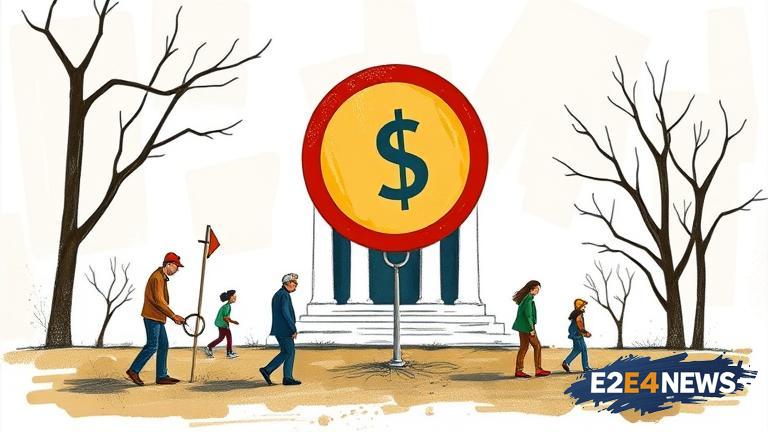Non-profit organizations across the United States are facing a looming financial crisis as potential budget cuts threaten to disrupt their operations. Many non-profits rely heavily on government funding to provide vital services such as food banks, healthcare, and education to vulnerable populations. The proposed budget cuts would have a devastating impact on these organizations, forcing them to reduce staff, cut programs, and limit their services. This would not only affect the non-profits themselves but also the communities they serve, leaving many without access to essential resources. The non-profit sector is a significant contributor to the US economy, accounting for over 10% of the workforce and generating billions of dollars in revenue each year. Despite their importance, non-profits are often overlooked in budget negotiations, leaving them vulnerable to funding cuts. The potential budget cuts would also have a ripple effect on the economy, as non-profits are often major employers and purchasers of goods and services. Furthermore, the loss of non-profit services would place an additional burden on already strained government resources, exacerbating social and economic problems. Non-profit leaders are urging lawmakers to consider the long-term consequences of budget cuts and to prioritize funding for essential services. They argue that investing in non-profits is not only a moral imperative but also a sound economic strategy, as every dollar invested in non-profits generates a significant return in terms of economic growth and social benefits. The budget cuts would also disproportionately affect marginalized communities, who rely heavily on non-profit services for support. In response to the potential budget cuts, non-profits are mobilizing their supporters and advocating for increased funding. They are also exploring alternative funding sources, such as private donations and corporate partnerships, to mitigate the impact of budget cuts. However, these efforts may not be enough to offset the losses, and non-profits are bracing for a difficult road ahead. As the budget negotiations continue, non-profit leaders are calling on lawmakers to prioritize funding for essential services and to recognize the vital role that non-profits play in supporting communities in need. The fate of non-profits and the communities they serve hangs in the balance, and the outcome of the budget negotiations will have far-reaching consequences for the social and economic fabric of the United States. In conclusion, the potential budget cuts pose a significant threat to non-profits and the communities they serve, and it is essential that lawmakers prioritize funding for essential services to ensure the continued viability of these vital organizations.





